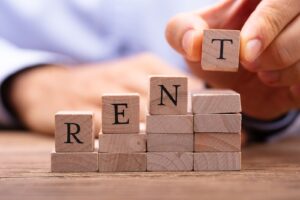What to expect when you become a Landlord
No doubt about it, being a Landlord can be a rewarding experience. At the same time, it also requires a big leap of faith. It is not easy juggling mortgage, insurance and property tax payments. It is not easy hoping the rent is on time. It is not easy getting those late night or weekend calls about a water leak or a broken fridge. And, it is definitely not easy to hand over your $500,000+ asset to a stranger in hopes they will take care of it the way you would.
We’ve all heard horror stories about Tenants destroying the property. Some Tenants can disturb the neighbours. Some Tenants are a general nuisance to the neighbourhood. This is every Landlord’s nightmare.
Luckily, those are extreme cases. In reality, this doesn’t happen that often. Most Tenants are respectful of property and remain on good terms with the Landlord and neighbours.
Every property owner I’ve dealt with has some level of anxiety about property maintenance. They don’t know what to expect and they’re not clear what their role should or must be. So to help with this, I’ll try to provide some guidance to my Clients I use “The Rental Car Analogy”.
When renting a car, most people will generally take care of the vehicle. They’ll drive and park carefully. They obey the traffic laws. They try not to spill food or coffee on the seats. They clean out their garbage and fill the gas tank before they return it.
However, they don’t own the car. They won’t hand-wash it in their driveway. They won’t vacuum and wipe the interior. Changing the oil or air filter is not their responsibility. Checking tire pressures or installing new tires would never be considered. Although they’ll try not to spill things, they may not be as careful not to drag their suitcase across the back bumper. Most people just use the car as transportation and return it.
This is exactly how most Tenants will treat their rental house or apartment. And this is not a bad thing. They don’t own the property, so they don’t feel that same sense of responsibility that ownership brings.
This is where conflict can arise. I call it a ‘conflict of expectations’. The Landlord expects the Tenant to take care of the property as the Landlord would. The Tenant just wants a place to live. The Tenant might not have time for property upkeep. They might not even know how. People have different living standards. Some may have never had to cut grass before. As a Tenant they believe they pay rent and therefore expect certain things to be taken care. The long-term condition and value of the property doesn’t matter to the Tenant as much as it does the Landlord.
As a result of these different expectations can result in a ‘gap’ in the maintenance of the property. The Landlord believes that the Tenant should be responsible for the upkeep of the property. The Tenant believes that the Landlord should take care of it. At this point, neglect can set in. Cutting the grass, changing the furnace filter or cleaning the garbage out of the garden shed, all can be overlooked.
Neglect caused by the ‘gap’ can have a severe impact on the long-term value and profitability of the property. I’ve seen it again and again.
Unfortunately these Landlords only see the immediate impact on their bottom line. They look at the expense for grass cutting, spring and fall cleanup, painting or preventative maintenance. This Landlord wants to avoid these costs by putting the responsibility on the Tenants.
However, as a Landlord, you need to take a longer view. Consider the future costs of sub-standard maintenance. This might include:
- Lower property value
- Bigger-ticket repairs or renovation expenses
- Lower-quality Tenants
- Below-market rents
- Conflict with neighbours
Ultimately, the Landlord will bear the cost for sub-standard maintenance. The cost will be felt now or sometime down the road. It should not just about the short-term money. It is should be about taking pride in your portfolio of properties.
Believe me, there is nothing worse than doing a drive-by of your property and seeing that it has turned into an eye-sore. You may get to the point that you don’t want to go to the property. Taking the “out of sight, out of mind” approach.
Do not let it get to this point!
In my next article, I will discuss ways to manage the maintenance of your property. All, without breaking bank.





